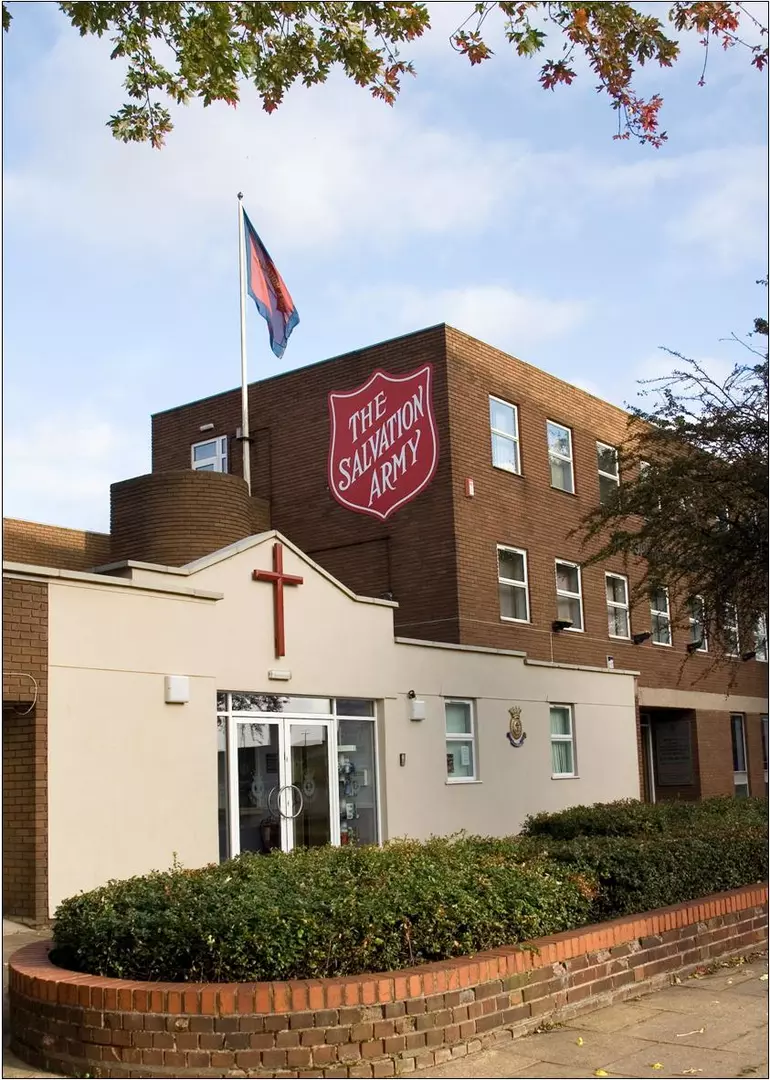Birmingham child contact centre founded after chat on doorstep
published on 26 Oct 2021
Nearly 500 children have benefitted from closer contact with a parent through the child contact centre at The Salvation Army Birmingham Citadel in St. Chads, Queensway. The centre celebrates 21 years of operation this year and Salvation Army leaders have acknowledged the hard work, thanking the founders and its volunteers.
It is estimated by the National Association of Child Contact Centres (NACCC) that a million children in the UK have no contact whatsoever with one of their parents after separation. Child contact centres provide safe places where children can meet the parent they no longer live with. There are 350 child contact centres in the UK, run by a network of nearly 3000 volunteers*.

The city-centre Birmingham Salvation Army opened their church as a child contact centre in September 2000, with a handful of volunteers. That swelled to 20 in 2014 and then to 31 just before the coronavirus pandemic.
Child contact centres are usually based within local communities and the way in which the centre was born came from a simple doorstep conversation, when The Salvation Army were knocking on doors fundraising for their annual appeal.
Graham Andrews, the current coordinator of the centre explained: “Major Samuel Edgar, the past leader of Birmingham Citadel was door-knocking, collecting for the appeal in 1999. One of the doors he knocked on belonged to Duncan Gore, the Development officer for the NACCC. Duncan got chatting to the Salvation Army officer and explained he was looking to open a new centre in the Birmingham area and asked Major Samuel if he could help.”
Major Edgar invited Duncan to speak to the church congregation about child contact centres and also to ask for volunteers to run a service at The Salvation Army. Fred Devereux, a member of the band, came forward. He had a social work background and wanted to help families, so was an ideal person to coordinate the new venture.

At the beginning of October, Fred, now in his 80s, was sent a letter of appreciation by the leaders of The Salvation Army UK, Territorial Commanders Anthony and Gill Cotterill, for his hard work in setting up the centre and developing it until his retirement as coordinator. Fred continues to support the centre as a volunteer.
Fred successfully coordinated five teams of volunteers to cover alternate Saturday mornings through the year. He went above and beyond the role of a centre coordinator, frequently supporting the more vulnerable families at court, using contacts to help find accommodation for the parent leaving the family home, as well as referring parents to agencies.
The child contact centre continues to be run by Graham and Diane Andrews. Graham, who took over as centre coordinator in 2014, but volunteered since 2001, paid tribute to Fred and all the centre volunteers, he said: “Without our leader, Major Edgar responding positively to Duncan Gore on his doorstep, the centre wouldn’t have been here. But it takes more than a vision, it needs people to run it and the church committed to help do that, and without people like Fred and the many other volunteers both past and present, many children may have struggled to see one of their parents. We thank God for their service and the work of the child contact centre in Birmingham.”
Early Years Operation Manager at The Salvation Army, Andrea Stevens, said:
“The Salvation Army is aware of the heartbreak and anxiety when children and families are unable to have contact or communicate with each other. By providing safe spaces where parents and children can start to rebuild the relationships in a caring and supportive environment, we can empower parents to get to the stage where we are no longer needed, as the parents are able to make their own contact arrangements outside of the service and to build lifelong relationships with their children.
“Volunteers are essential to keep this service running and bring such a wide range of knowledge. Each volunteer brings their own skill set and for this we are grateful.”
Additional notes:
*Source: The NACCC website https://naccc.org.uk/
